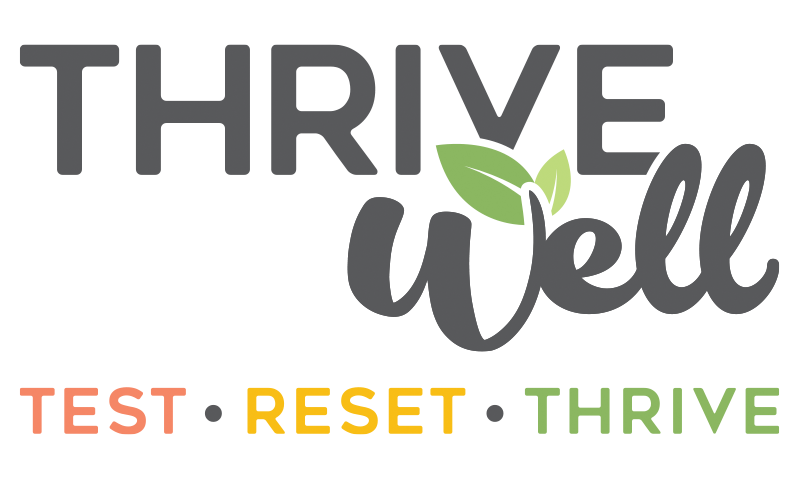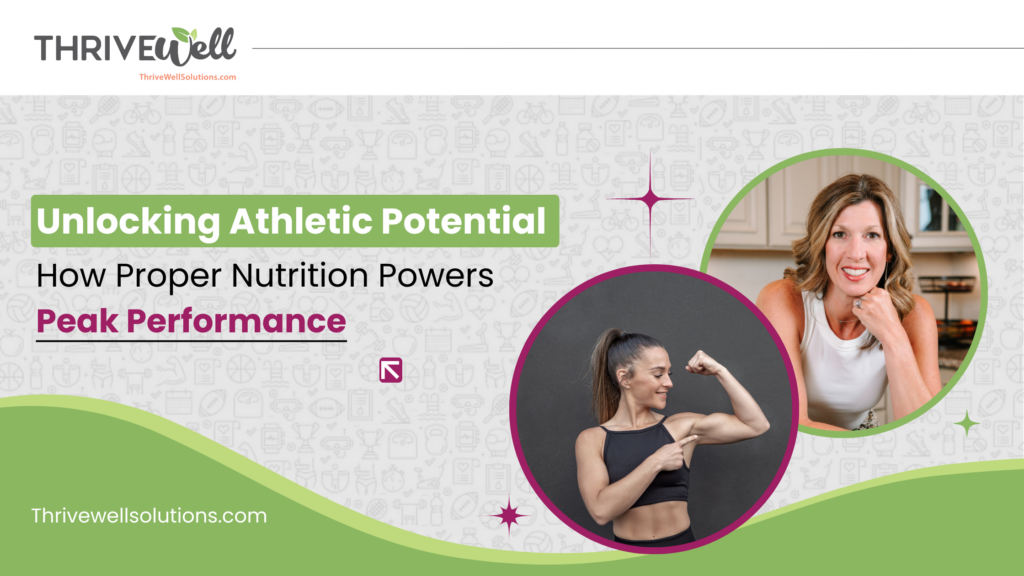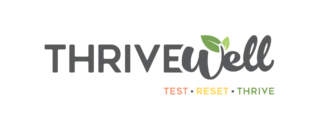Let me guess — you’re pushing hard, tracking your macros, sleeping (mostly) enough, but something still feels… off.
Your training partner recovers faster. That nagging inflammation won’t quit. Your energy crashes mid-workout despite perfect fueling. And honestly? You’re tired of hearing “just train harder” or “eat more protein” when you’re already doing everything “right.”
I see you because I’ve been there. As both a functional nutrition specialist and former athlete, watching clients struggle with the same invisible barriers, I can tell you what no one else is saying:
Your performance plateau isn’t a training issue — it’s a recovery crisis driven by suboptimal nutrition for athletes. What you eat before a competition matters just as much as your training.
And it’s happening because of four hidden saboteurs that conventional sports nutrition completely overlooks.
The Hidden Saboteurs Blocking Your Athletic Potential
1. UNDETECTED FOOD SENSITIVITIES — When “Clean Eating” Backfires
That protein shake? Those “healthy” eggs and oatmeal? Your pre-workout banana?
They might be silently triggering inflammation that:
- Slows your recovery by 30-50%
- Creates that stubborn water retention
- Causes joint pain that you blame on training
- Triggers post-workout headaches
The Truth: Up to 70% of athletes have hidden food sensitivities that don’t show up on standard allergy tests. Many “superfoods,” such as eggs, almonds, oats, and certain vegetables, can trigger immune reactions when your gut barrier is compromised.
One of my clients, a competitive runner, eliminated her “healthy” daily yogurt and saw her recovery time cut in half. Another discovered that his post-workout fatigue disappeared when we identified his sensitivity to the whey protein he had been using for years.
What conventional advice misses: Eating “clean” isn’t enough when your body is reacting to foods you don’t suspect. And no, you can’t just “push through” inflammation — it’s literally preventing your muscles from recovering properly. A proper muscle recovery diet must consider your unique food sensitivities.
2. TOXIC OVERLOAD — The Performance Killer No One’s Talking About
Your body is a detoxification machine, but modern life has overwhelmed its capacity. Athletes are particularly vulnerable because:
- You drink more water (hello, chlorine, fluoride, and microplastics)
- You breathe more air during training (increasing exposure)
- Training creates oxidative stress that pulls resources from detox pathways
- Sweating releases toxins that can be reabsorbed through the skin
Common toxicity signs athletes miss:
- Unexplained fatigue that persists despite rest
- Mood swings or brain fog after workouts
- “Hitting the wall” earlier than you should
- Slow recovery despite proper nutrition
- Hormonal imbalances affecting performance
The Truth: Your liver is too busy processing environmental toxins to focus on recovery. Your body is prioritizing survival over performance.
A triathlete I worked with was developing exercise-induced asthma. After identifying high levels of mold toxins and supporting his detox pathways, his breathing normalized, and his times improved dramatically. This is why detoxification support is an essential but overlooked component of optimal nutrition for athletic recovery.
3. CRITICAL NUTRIENT DEFICIENCIES — You’re Running on Empty
You’re an athlete. You burn through nutrients faster than sedentary people. Yet standard bloodwork rarely catches deficiencies until they’re severe.
The most common deficiencies sabotaging athletes:
- Magnesium: Depleted through sweat, stress, and muscle exertion
- B Vitamins: Critical for energy production and recovery
- Zinc: Crucial for testosterone, growth hormone, and immune function
- Iron: Essential for oxygen transport and energy production
- Trace minerals: The spark plugs for enzyme function
What your body is trying to tell you:
- Those muscle cramps aren’t just dehydration
- Your slow recovery isn’t laziness
- Poor sleep despite exhaustion isn’t normal
- Brain fog during workouts is a nutrient emergency
The Truth: You can’t outwork a deficiency. Period. And standard “athletic” supplements are often poorly absorbed forms that look good on labels but fail to replenish your depleted stores.
A CrossFit athlete came to me frustrated with plateaued performance and constant fatigue. Our testing revealed severe B-vitamin deficiencies and compromised methylation. After three months of targeted replenishment, her energy skyrocketed, and she set six new personal records. A comprehensive muscle recovery diet must address these precise nutrient needs.
4. GUT DYSFUNCTION — The Recovery Bottleneck
Your gut isn’t just for digestion — it’s command central for:
- Nutrient absorption
- Inflammation regulation
- Hormone balance
- Neurotransmitter production
When your gut is compromised (and most athletes’ are), you get:
- Poor nutrient absorption despite a perfect diet
- Systemic inflammation blocks recovery
- Hormone imbalances affecting energy and performance
- Compromised immune function leading to frequent illnesses
The Truth: Training intensity creates gut stress. Add in common triggers like NSAIDs, sports drinks, protein powders, and pre-workout supplements, and you have a recipe for intestinal permeability (“leaky gut“) that sabotages everything else.
A collegiate swimmer struggling with fatigue discovered that his gut dysfunction was preventing absorption of the very supplements meant to help him. Once we healed his gut first, his energy returned, and his times improved dramatically. This demonstrates why gut health is a cornerstone of athlete recovery nutrition.
The Unique Challenges of Student-Athletes
As a student-athlete, you balance intense training, academics, and a social life, which can take a toll on your body. The demands on your time and energy are higher, and traditional approaches to nutrition and recovery often don’t address the specific needs of young athletes.
Here’s what we know:
- Limited Recovery Time: Between studying, practice, and class, sleep and recovery often take a backseat. Without enough time to recover, even the best athletes are prone to burnout, injuries, and performance plateaus.
- Nutrient Depletion: Student-athletes frequently face nutrient deficiencies due to the stress of training and a fast-paced lifestyle. When you’re on the go, quick, convenient foods might be your go-to, but they often lack the essential nutrients needed for optimal performance.
- Mental Stress: Juggling academics, sports, and social life can lead to mental fatigue, leaving you feeling drained and unfocused during training and competitions. This mental stress can also affect your physical recovery.
At ThriveWell, we understand these unique challenges. We create personalized plans that work with your busy schedule, helping you recover faster, perform better, and feel more in tune with your body through targeted athlete recovery nutrition.
The ThriveWell Athlete Solution
At ThriveWell, we don’t guess — we TEST. Our comprehensive approach for athletes includes:
- Personalized Food Profiling with Food Sensitivity Testing: Identifying your specific triggers, not generic eliminations
- Toxic Burden Assessment: Pinpointing your exact roadblocks
- Comprehensive Nutrient Analysis: Finding YOUR specific deficiencies
- Gut Function Evaluation: Assessing the foundation of your recovery
Then we create a personalized muscle recovery diet protocol that works with your training schedule, food preferences, and competitive calendar — not another one-size-fits-all approach.
Real Athletes, Real Results
Marathon runner Sarah: “After years of hitting the wall at mile 18, I finally completed my first marathon without bonking after addressing my hidden food sensitivities and magnesium deficiency.”
CrossFit competitor Mike: “I was doing everything ‘right’ but still feeling inflamed and fatigued. ThriveWell identified my toxic burden from years of drinking unfiltered water. After three months of targeted detox support, my recovery time has cut in half.”
Tennis player Jessica: “The brain fog during matches was ruining my performance. After addressing my B vitamin deficiencies and gut health, my mental clarity and endurance have completely transformed.”
Ready to Break Through Your Performance Plateau?
If you’re:
- Training hard but recovering slowly
- Eating clean but still feeling inflamed
- Following standard advice but still struggling
- Ready for personalized, science-backed solutions for optimal nutrition for athletic recovery
Then it’s time for a different approach to nutrition for athletes. What to eat before a competition shouldn’t be guesswork—it should be personalized to your unique needs.
📅 Book your Athlete Performance Assessment:
Don’t waste another season pushing against invisible barriers. Let’s identify what’s really holding you back and create the personalized solution your body needs.
You’ve put in the work. Now let’s make it pay off with the right nutrition plan that optimizes both your daily recovery and pre-competition performance.
Jennifer Strother
Functional Nutrition & Recovery Specialist
Thrivewellsolutions.com



